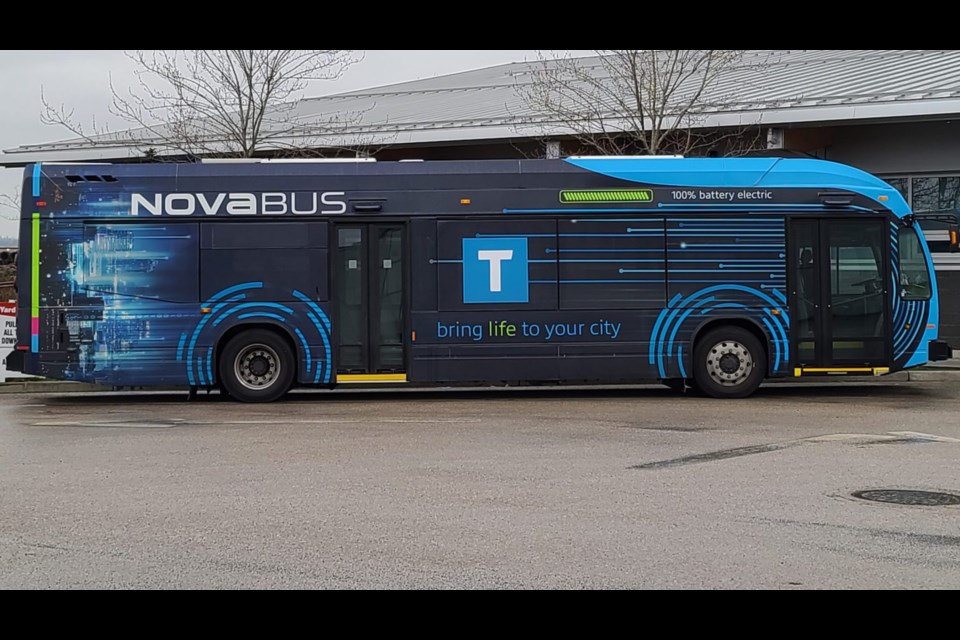Vancouverites have the chance to see a uniquely designed and powered bus driving around the city as TransLink takes another step towards phasing out its diesel-powered fleet.
The transit company already has two Nova buses in use but they can only travel roughly 40 kilometres on a single charge. Soon, though, TransLink will begin testing a newer model from the same company capable of travelling 150 km between charges.
“The ones we have now need to continuously use on-route charging stations to serve customers throughout the day,” TransLink explained in a recent post to its Buzzer Blog. “The newer models should have more flexibility in how often they need to charge.”
The change all stems from TransLink’s Climate Action Strategy which lays out how the old diesel buses are to be replaced with battery-electric buses to reduce greenhouse gas emissions.
“Currently, we have four battery-electric buses in service with 15 more on the way,” TransLink writes. “To make sure those 15 new buses will be effective and efficient for many years, we’re running tests on a demo bus provided by Nova Bus.”
Those tests include subjecting the battery-powered busses to a Vancouver winter, seeing how the cold changes how the batteries are affected and thus the vehicle’s acceleration and charging times.
Currently, there are two fast-charge stations at the 22nd Street Bus Exchange and the Marpole Loop manufactured by two different companies. TransLink will also be testing if the new Nova Bus model is compatible with these chargers.
“Once the tests are complete, we will use the results to potentially request modifications on the 15 buses before we receive them to ensure they run effectively and efficiently for many years,” TransLink adds.
TransLink plans to replace over 400 diesel buses with battery-electric buses by 2030, equating to over 40,000 tonnes of Green House Gas emissions annually. TransLink plans on having a zero-emission bus fleet by the year 2040.




